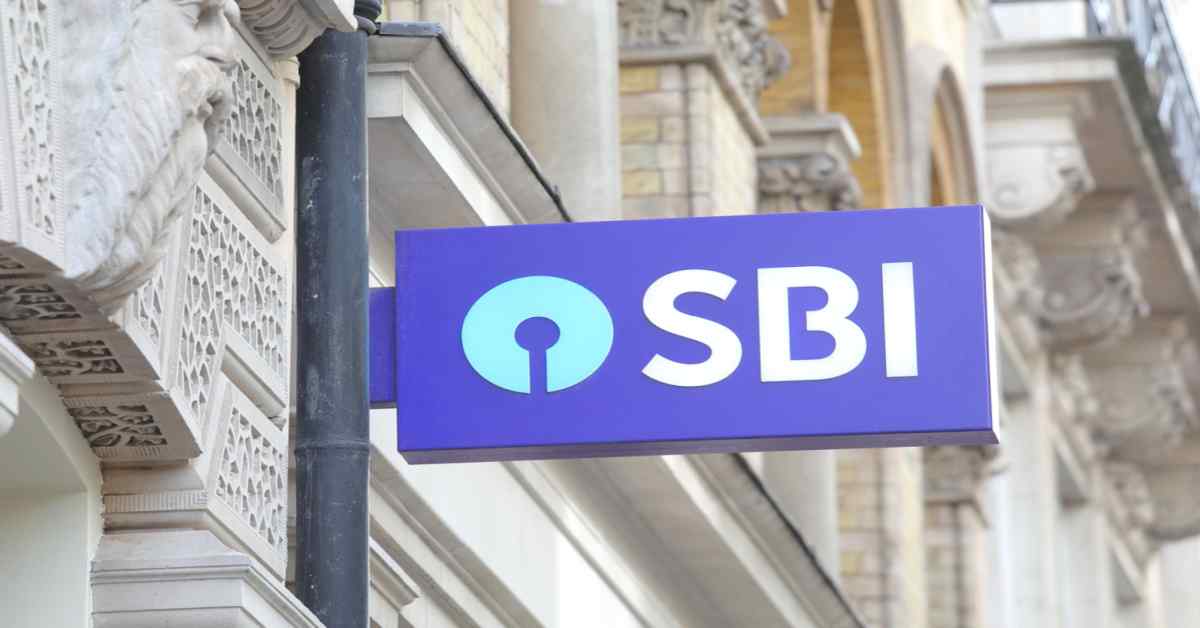Table of Contents
Quality Service Guarantee Or Painting Free

Get a rental agreement with doorstep delivery

Find the BEST deals and get unbelievable DISCOUNTS directly from builders!

5-Star rated painters, premium paints and services at the BEST PRICES!
Loved what you read? Share it with others!


Submit the Form to Unlock the Best Deals Today
Help us assist you better
Check Your Eligibility Instantly

Experience The NoBrokerHood Difference!
Set up a demo for the entire community
Lowest Home Loan Interest Rates Explained: Comparing the Best Deals
Table of Contents
Finding the lowest home loan interest rate can significantly reduce your borrowing costs and save you a substantial amount of money over the loan term. While securing the lowest interest rate property loan is important, remember to compare total loan costs including processing fees and prepayment charges.
In this guide, we'll explore the current market landscape to help you secure the most competitive interest rate for your home loan.
Lowest Home Loan Interest Rates of all Banks 2024
| Bank | Starting Interest Rate |
| Bank of India | 8.40% |
| Bank of Maharashtra | 8.35% |
| LIC Housing Finance | 8.35% |
| Union Bank of India | 8.70% |
| UCO Bank | 8.45% |
| SBI | 8.25% |
| HDFC | 8.40% |
| Canara bank | 8.50% |
| Karnataka Bank | 8.50% |
| Central Bank of India | 8.45% |
| Kotak Mahindra | 8.85% |
| Godrej Finance | 8.64% |
Understanding Home Loan Interest Rates
Beyond fixed and floating rates, there's another category of home loan interest rates called dynamic rates. These rates can be more complex but offer some flexibility. Here's a breakdown of some common dynamic rate options:
Quality Service Guarantee Or Painting Free

Get a rental agreement with doorstep delivery

Find the BEST deals and get unbelievable DISCOUNTS directly from builders!

5-Star rated painters, premium paints and services at the BEST PRICES!
- Adjustable Rate Mortgages (ARMs): Similar to floating rates, ARMs are pegged to a benchmark rate but adjust periodically (e.g., every 3, 5, or 7 years). This means your interest rate and EMI can change after the introductory fixed-rate period.
- Capped Floating Rate Loans: These loans have a floating rate that fluctuates within a pre-defined range. While the rate can go up, there's a limit, offering some protection against significant increases.
- Teaser Rates: Some lenders may offer very low introductory rates to entice borrowers. However, these rates are typically temporary, and the interest rate can jump significantly after a short period. Be cautious of teaser rates and ensure you understand the long-term implications.
Fixed vs. Floating Rates
Fixed Rate
- Definition: The interest rate remains constant throughout the loan tenure.
- Pros:
- Predictable EMIs (Equated Monthly Instalments): Your monthly payment stays the same, making budgeting easier.
- Protection from rising interest rates: If interest rates go up in the future, you're not affected.
- Cons:
- May not always offer the lowest initial rate: Fixed rates can sometimes be slightly higher than floating rates initially.
- Limited flexibility: Early repayment charges might apply if you want to pay off the loan before the term ends.
Floating Rate
- Definition: The interest rate fluctuates based on a benchmark rate set by the central bank or other market factors.
- Pros:
- Potentially lower initial rate: Floating rates can be attractive if you expect interest rates to remain stable or decrease.
- Prepayment flexibility: Early repayment charges may be lower compared to fixed rates.
- Cons:
- Unpredictable EMIs: Your monthly payment can change if the interest rate goes up, impacting your budget.
- Risk of rising interest rates: If rates increase significantly, your EMIs could become a burden.
Choosing Between Fixed and Floating:
The best option for you depends on your risk tolerance and financial goals:
- Choose Fixed Rate if:
- You prefer predictability and stability in your monthly payments.
- You're worried about future interest rate hikes.
- Choose Floating Rate if:
- You're comfortable with some variability in your EMIs.
- You believe interest rates might stay low or decrease in the future.
- You plan to prepay the loan early and want more flexibility.
Factors Affecting Your Home Loan Interest Rate
The interest rate you receive on your home loan significantly impacts your overall borrowing cost. Here are some key factors that lenders consider when determining your rate:
1. Credit Score:
This is a crucial factor. A high credit score (typically above 750) indicates a strong history of repaying debts on time. This makes you a more attractive borrower to lenders and qualifies you for significantly lower interest rates. Conversely, a low credit score can lead to higher interest rates or even loan rejection.
2. Loan-to-Value Ratio (LTV):
LTV refers to the loan amount as a percentage of the property value. For example, if the property costs ₹100 lakh and you borrow ₹80 lakh, your LTV is 80%. A lower LTV (meaning higher down payment) signifies lower risk for the lender, potentially qualifying you for a better interest rate.
3. Down Payment:
Making a larger down payment lowers your LTV and demonstrates your financial commitment to the purchase. This can incentivise lenders to offer you a more favourable interest rate.
4. Employment Profile:
A stable job history with a reputable employer and a healthy income level assure lenders of your ability to repay the loan. This can positively influence your interest rate.
5. Negotiation:
While not as common in India, you may have some room for negotiation on the interest rate, especially if your credit score and profile are strong. It's worth politely discussing the rate with the lender and comparing offers from multiple lenders to secure the best deal.
Finding Low-Interest Home Loans
Obtaining a home loan with a low interest rate can significantly reduce your borrowing cost and save you a substantial amount of money over the loan term. Here are some key strategies to help you find the best deal:
1. Research Online:
The internet is a powerful tool for comparing home loan interest rates. Utilise online resources like:
- Loan Aggregator Websites: These websites allow you to compare rates from multiple lenders in one place. Popular options in India include BankBazaar and Paisabazaar. While many lenders advertise cheap-interest home loans, it's important to compare offers and consider all associated fees to find the most affordable option for your situation.
- Bank Websites: Many banks publish their home loan interest rates on their official websites.
2. Explore Different Lenders:
Don't limit yourself to your primary bank. Research and compare rates offered by various banks, housing finance companies (HFCs), and non-banking financial companies (NBFCs). Each lender might have different criteria and offer varying interest rates based on your profile.
3. Pre-approved Loans:
Consider getting pre-approved for a home loan. This process involves a lender assessing your creditworthiness and providing a conditional loan offer with a pre-determined interest rate. Here are the benefits:
- Stronger Negotiation Position: A pre-approval can strengthen your bargaining power when negotiating the interest rate with your preferred lender.
- Streamlined Loan Process: Having a pre-approval can expedite the loan application process once you've finalised a property.
Additional Tips to Secure a Low-Interest Rate
Go Beyond the Basics: Pro Tips for Securing a Low-Interest Rate
While a good credit score and a healthy down payment are crucial for securing a low home loan interest rate, there's more you can do to optimise your application and save money in the long run. Here are some pro tips to help you get the best deal:
1. Maintain an Impeccable Credit Score:
We can't emphasise this enough – a high credit score significantly influences your interest rate. Here's how to maintain a stellar credit score:
- Pay Bills on Time: Delinquencies and late payments can significantly damage your credit score. Make timely payments on all your bills, including credit cards, utilities, and existing loans.
- Manage Credit Utilisation Ratio: This ratio refers to the amount of credit you're using compared to your total credit limit. Aim to keep your credit utilisation below 30% for a healthy score.
- Check Credit Report Regularly: Obtain a free copy of your credit report from credit bureaus in India (CIBIL, Experian, Equifax) and dispute any errors that might be dragging down your score.
2. Increase Your Down Payment:
Saving for a larger down payment not only reduces your loan amount but also demonstrates your financial commitment to the purchase. This can incentivise lenders to offer you a lower interest rate.
3. Choose the Right Loan Term:
A shorter loan term typically comes with a lower interest rate compared to a longer term. However, it also means higher monthly payments (EMIs).
- Strike a Balance: Carefully consider your budget and long-term financial goals to choose a loan term that balances affordability with total interest cost.
4. Consider Additional Fees:
While the interest rate is a major factor, don't neglect other associated costs:
- Processing Fees: These are one-time charges levied by the lender for processing your loan application.
- Prepayment Charges: Some lenders may penalise you for paying off your loan early.
- Factor in All Costs: Compare loan offers by considering not just the interest rate but also any processing fees or prepayment charges.
How NoBroker Can Help
Securing the lowest home loan interest rate can significantly reduce your borrowing costs and save you a substantial amount of money in the long run. By following the strategies and tips outlined above, you can strengthen your application, compare offers effectively, and negotiate for the best possible deal.
Still confused about the lowest home loan interest rates? NoBroker's home loan services can streamline your journey to securing the lowest interest rate. Our team of professionals connects you with various lenders, helps you compare offers, and simplifies the application process. Don't navigate the complexities alone - visit NoBroker.com today to start your free home loan consultation.
Frequently Asked Questions
Ans: The minimum interest rate on a home loan can vary depending on several factors like your credit score, loan amount, and property type. However, as of April 2024, some lenders offer rates starting from 8.30%. It's important to compare rates from different banks and housing finance companies to find the best deal for your situation.
Ans: Maintaining a high credit score, increasing your down payment, and choosing a shorter loan term can all improve your chances of getting a lower interest rate. Additionally, you can explore pre-approved loans and negotiate with lenders, especially if you have a strong financial profile.
Ans: Several banks and housing finance companies in India offer competitive home loan interest rates. Some prominent institutions with historically lower rates include the Bank of India, LIC Housing Finance, and SBI (State Bank of India). However, it's crucial to compare rates from various lenders as they can change frequently.
Ans. Yes, some government schemes offer benefits for specific demographics. For instance, the Pradhan Mantri Awas Yojana (PMAY) offers interest rate subsidies for eligible first-time homebuyers. Explore government websites or consult a financial advisor to learn more about such schemes.
Ans. The choice between fixed and floating depends on your risk tolerance and financial goals. Fixed rates offer stability but might be slightly higher initially. Floating rates can be lower initially but can fluctuate with market conditions. Consider your comfort level with potential rate changes.
Loved what you read? Share it with others!
Most Viewed Articles

Home Loan Interest Rates for All Banks in November 2024
November 3, 2024
23642+ views

ICICI Home Loan Interest Rates - Updated in November 2024
November 3, 2024
22414+ views

SBI Home Loan Interest Rates - Updated in December 2024
December 17, 2024
20325+ views

Understanding Home Loan Tenure and Why It's Important
August 22, 2022
16033+ views

SBI Home Loan Interest Certificate: Benefits, Offline and Online Options, Get via Yono App in 2025
December 23, 2024
11529+ views
Recent blogs in
₹18 Lakh Home Loan EMI With Calculator And Interest Rates 2025
December 27, 2024 by Priyanka Saha
₹50 Lakh Home Loan EMI With Calculator And Interest Rates for 2025
December 26, 2024 by Manu Mausam
SBI Home Loan Processing Fee: Latest Rates and Schemes 2025
December 26, 2024 by Manu Mausam
NBFC Home Loans: The Smart Way to Finance Your Home
December 24, 2024 by Siri Hegde K
Loan Against Agricultural Land in India Explained
December 24, 2024 by Simon Ghosh




Join the conversation!